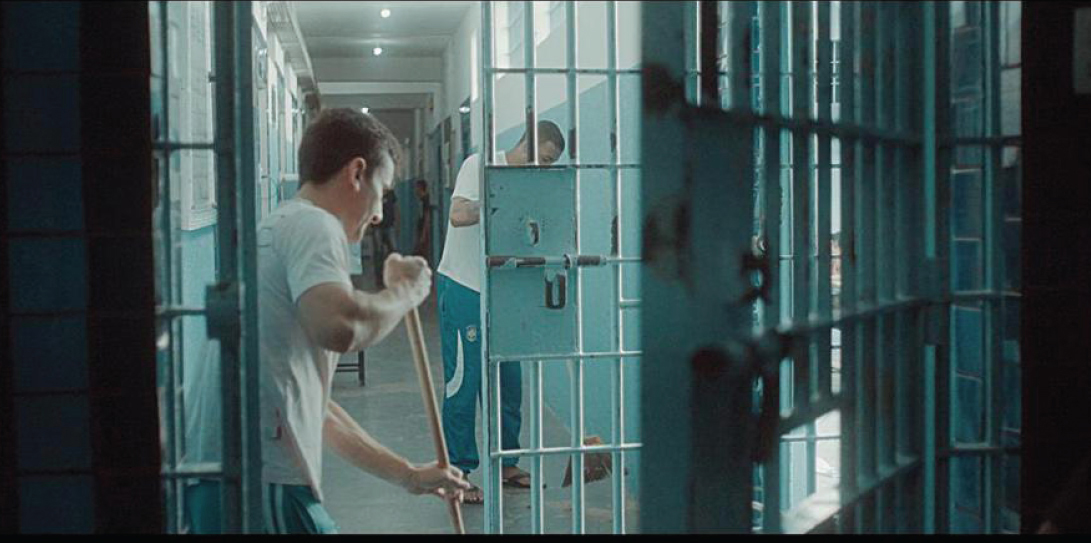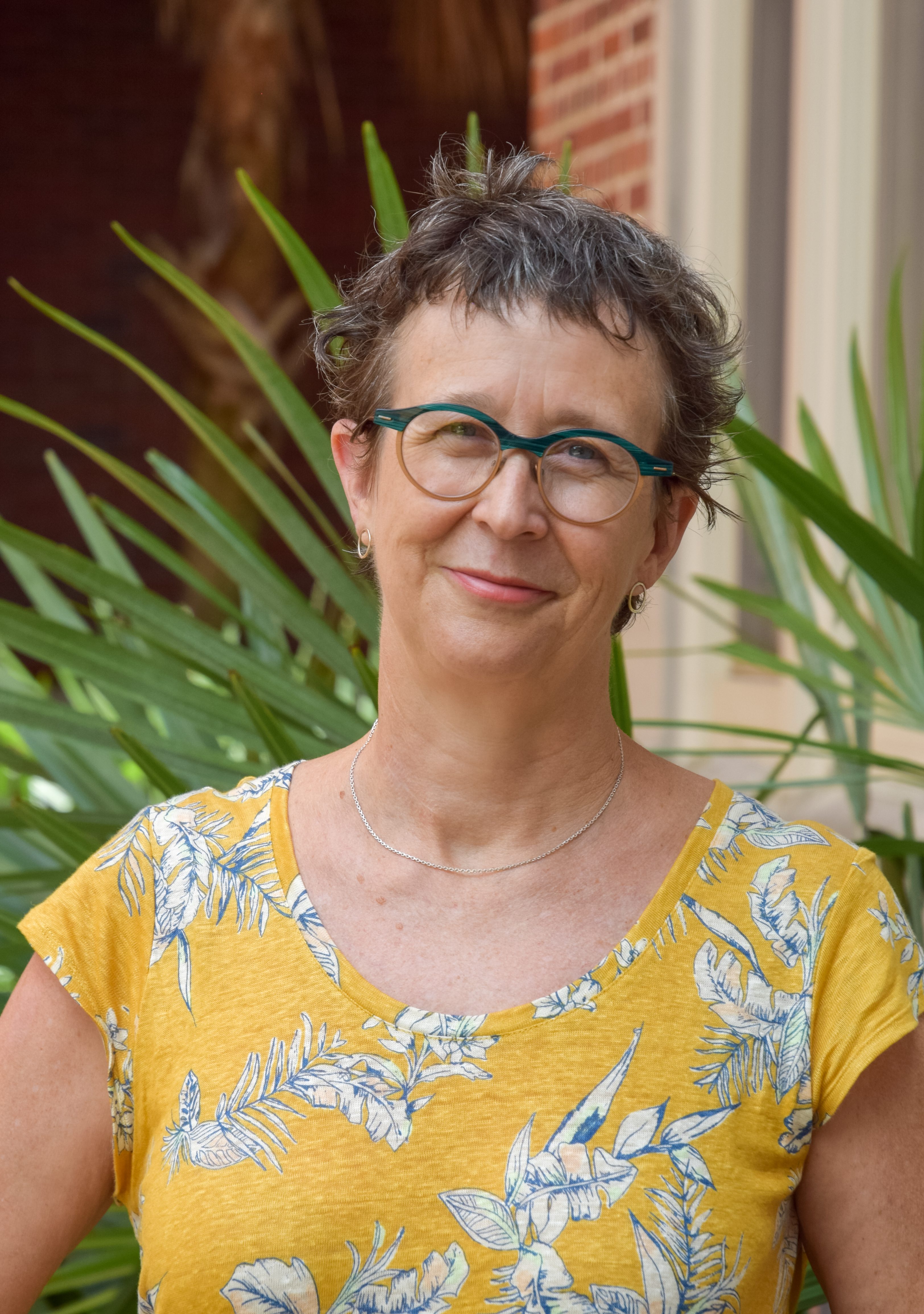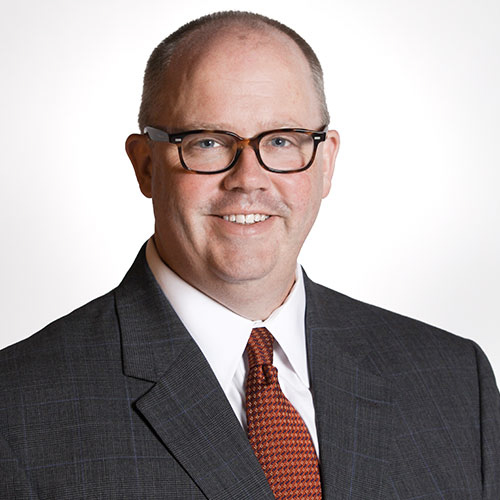
In this still image from the documentary "Unguarded," inmates clean the floors at a prison in Brazil run by the Association for the Protection and Assistance of the Convicted. Part of the restorative justice approach there involves work and education.
Documentary on Prison Reform in Brazil Draws Disparate UF Partners
'Unguarded' sparks conversation on restorative justice model for convicted offenders
A film that explores the power of love, trust and discipline to return convicted criminals to successful civic life in Brazil also offers a platform to show how disparate viewpoints can engage in healthy conversations at the University of Florida and its surrounding community.
The documentary “Unguarded” will be screened Feb. 27 at the Hippodrome Cinema in downtown Gainesville, with the support of several sponsors who bring varied perspectives to building robust, healthy civic bonds.
The sponsors include the Hippodrome, a community performing arts agency; AVSI-USA, an international development non-profit that supported production of the film; and UF units that include the Center for Latin American Studies, the Honors Program, the Hamilton Center for Classical and Civic Education, and the College of Liberal Arts and Sciences, including its Department of Sociology and Criminology & Law, the Department of Spanish and Portuguese Studies, the Center for Greek Studies, and the Center for the Humanities and the Public Sphere.
“I think we can all agree that America’s sky-high rate of incarceration indicates that something is wrong in our society,” said Trysh Travis, associate dean of the College of Liberal Arts and Sciences. “Reasonable people may disagree on how to fix this. But we can’t find solutions that will work and have broad support unless people with diverse viewpoints and expertise can discuss and collaborate. Bringing all this academic and civic firepower together in one place is the way to spark such collaboration. It should be a great evening,” she said.

Simonetta d’Italia Wiener, director of the award-winning documentary, will lead a panel discussion following the 5:30 p.m. screening. Panelists include Shon Hopwood, associate professor of law at Georgetown University; Patrick Mahoney, director of programs and re-entry for the Florida Department of Corrections; and Pre Shelton, community educator at Joseph House, a Catholic ministry based in the Florida Panhandle. Hopwood and Shelton advocate for people who, like themselves, have experienced incarceration. Those wishing to attend should register in advance.
“Unguarded” profiles the Association for the Protection and Assistance of the Convicted (APAC), which has shown a new path for the troubled prison system in Brazil. It uses a restorative justice model to demonstrate that even those convicted of serious crimes can be transformed into productive citizens when incarceration focuses on recovery over punishment.
APAC’s approach isn’t easy. Prisoners have a routine that runs from 6 a.m. to 10 p.m. and includes mandatory work, such as cleaning the facilities, and education. While crime and recidivism rates have continued to increase in Brazil’s public prisons – where rebellions and failure to meet human rights standards are common – within the APAC system, they have steadily decreased over the past 50 years.
The approach is now being extended to other countries, although those behind it are quick to say it isn’t a model that can simply be franchised.
Restorative justice, like that practiced at APAC prisons in Brazil, looks at the impacts of crime not just on offenders but also on victims and the families of offenders. It seeks to repair the harm and address the reasons for the offense. So, it engages with people coming from very different perspectives on what has occurred.
Likewise, the UF sponsors for the Gainesville event represent a wide range of interests.
“No group is more despised in society than those who commit crimes. Unfortunately, we tend to use them as mere objects or symbols to support a political agenda, whether it be ‘Tough on Crime’ or ‘Defund the Police’,” said John Stinneford, director of the Hamilton Center and professor at UF’s Levin College of Law.

“My hope is that this film will enable us to discuss how to treat prisoners as human persons who should be held accountable for their actions but who are nonetheless worthy of love and respect,” Stinneford said.
The Hamilton Center recently began sponsoring events and providing undergraduate classes at UF. Its mission is “to help students develop the knowledge, habits of thought, analytical skills, and character to be citizens and leaders in a free society.” The center’s approach emphasizes European and American intellectual history, with roots in classical philosophy.
Another sponsor, the Center for Latin American Studies, also focuses on the western hemisphere but generally looks a bit farther south, to Latin American and the Caribbean. That includes not just influences from the United States and Europe but also the indigenous peoples who populated the area.
“We have so many co-sponsors for this event because this problem can’t be owned by any one group or solved by any one approach,” said Travis, the UF administrator and professor.
“I’m particularly excited to welcome undergraduate students from all our sponsoring organizations. When it comes to solving complex social problems, I’m putting more and more of my faith in this next generation and their cross-disciplinary approaches and tools. They are the creative, collaborative professionals that the world needs right now,” she said.